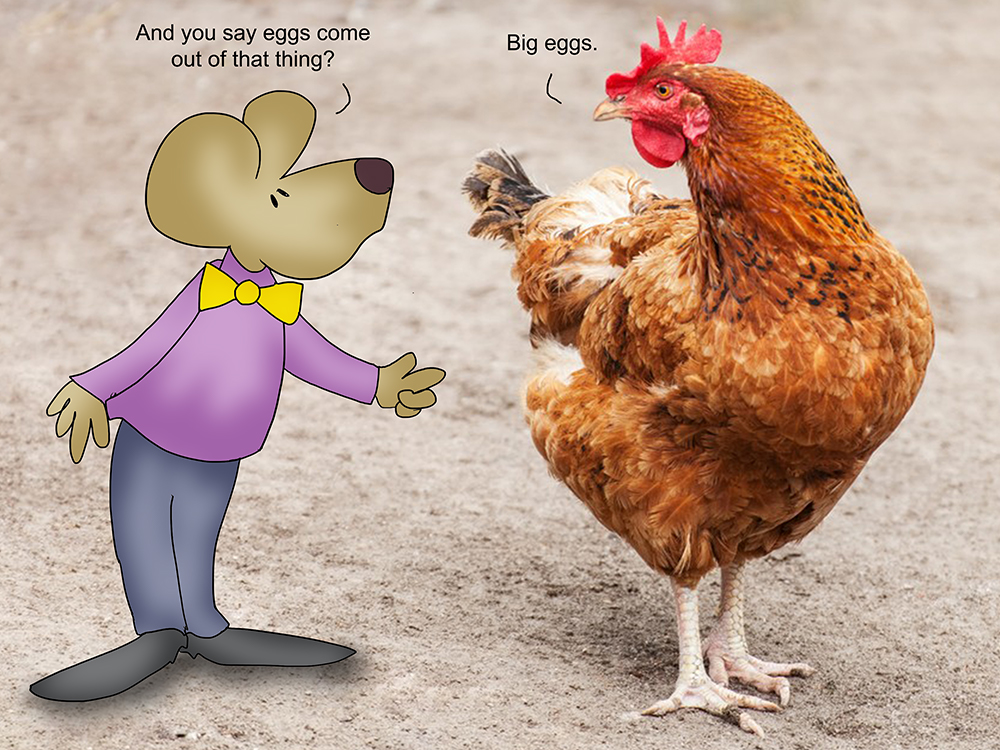We all know that Harland David Sanders was the chicken guy. The Kentucky Fried Chicken guy. It was on this date that KFC was founded in 1930. This happened in a place called North Corbin, Kentucky, which looks like it is right on I-75, almost to the Tennessee border.
I’m sure I’ve driven past it plenty of times. I just must not have paid attention. I guess Kentucky Fried Chicken is okay, by eating standards. We didn’t eat out much when I was a little girl. But on the occasions where we might get a bucket of chicken, which were rare, we seemed to prefer Churches Fried Chicken. It was founded by a guy named George W. Church in 1952. That chicken came all the way from the Alamo in San Antonio, TX. A little place right across the street is where the first Church’s Fried Chicken To-Go was located.
I’m a little more on the side of the eggs.
Anyway, this was KFC day.
Harland David Sanders was born on September 9, 1890. He didn’t come from Kentucky, though. He was born in a four-room house, due east of Henryville, Indiana. But it may as well be KY. The town is just a little minute away from Louisville.
There were three siblings in his family, and he was the oldest. His mother was a strict woman, a god-fearing, church-going woman, named Margaret. And then there was his dad, a mild and affectionate man named Wilbur. Wilbur Sanders was a farmer there in Henryville, but one day, he fell and broke his leg. So, he had to quit that. Instead, he took a job as a butcher. He wasn’t around for much of Harland’s life. Wilbur died in 1895 when Harland was only five years old.
But this was the precipice for his cooking. His mother had to go to work to make money for the family. So she took a job in a tomato cannery. And Harland, the oldest, at five, I’ll remind you, was left to look after and cook for his siblings.
It took a couple of years, but allegedly, by the age of seven, he was pretty good at making bread and cooking vegetables. Meats were getting better, the report says. And mother Margaret was away for days at a time, so those kids just had to figure it out.
It seems that another man always comes on the scene, though, in these stories. And that is what happened in 1899. His mother remarried Edward Park. By that time, Harland was not only cooking, he was also working as a farmhand.
I don’t know what happened to Edward Park. But by 1902, he was no longer on the scene. So Harland’s mother remarried again. This time, to William Broaddus. And after the marriage, the family moved to Greenwood, Indiana.
By this time, Harland is just about a teenager, and he did not see eye-to-eye with his new stepfather. So, he dropped out of seventh grade and moved to a nearby farm, where he took up full-time work. A year later, he left home and took a job painting horse carriages in Indianapolis.
From that point on, Harland Sanders worked about a million jobs. Okay, not a million, but a bunch. From farmhand to the army. Then it was a railroad guy, a fireman, a blacksmith helper. He studied law for a while, started a ferry boat company, and worked for Michelin.
Then, in 1930, he got a Shell Oil station and started selling food on the side. Some of it was chicken. People liked his chicken. And so it goes.
As far as I can tell, he was never a real Colonel. But, in 1950, the Governor of Kentucky, Lawrence Wetherby, somehow commissioned him as a Colonel. And that is when he started dressing up in his white suits, with his bolo tie, and his little goatee.
And there it is.
Maybe we see then, once again, it’s not so much what you do, but how you do it.
=========
“It is better to fail in originality than to succeed in imitation.”
― Herman Melville
=========
“Success is getting what you want, happiness is wanting what you get”
― W. P. Kinsella
==========
“Try not to become a man of success. Rather become a man of value.”
― Albert Einstein
=========
